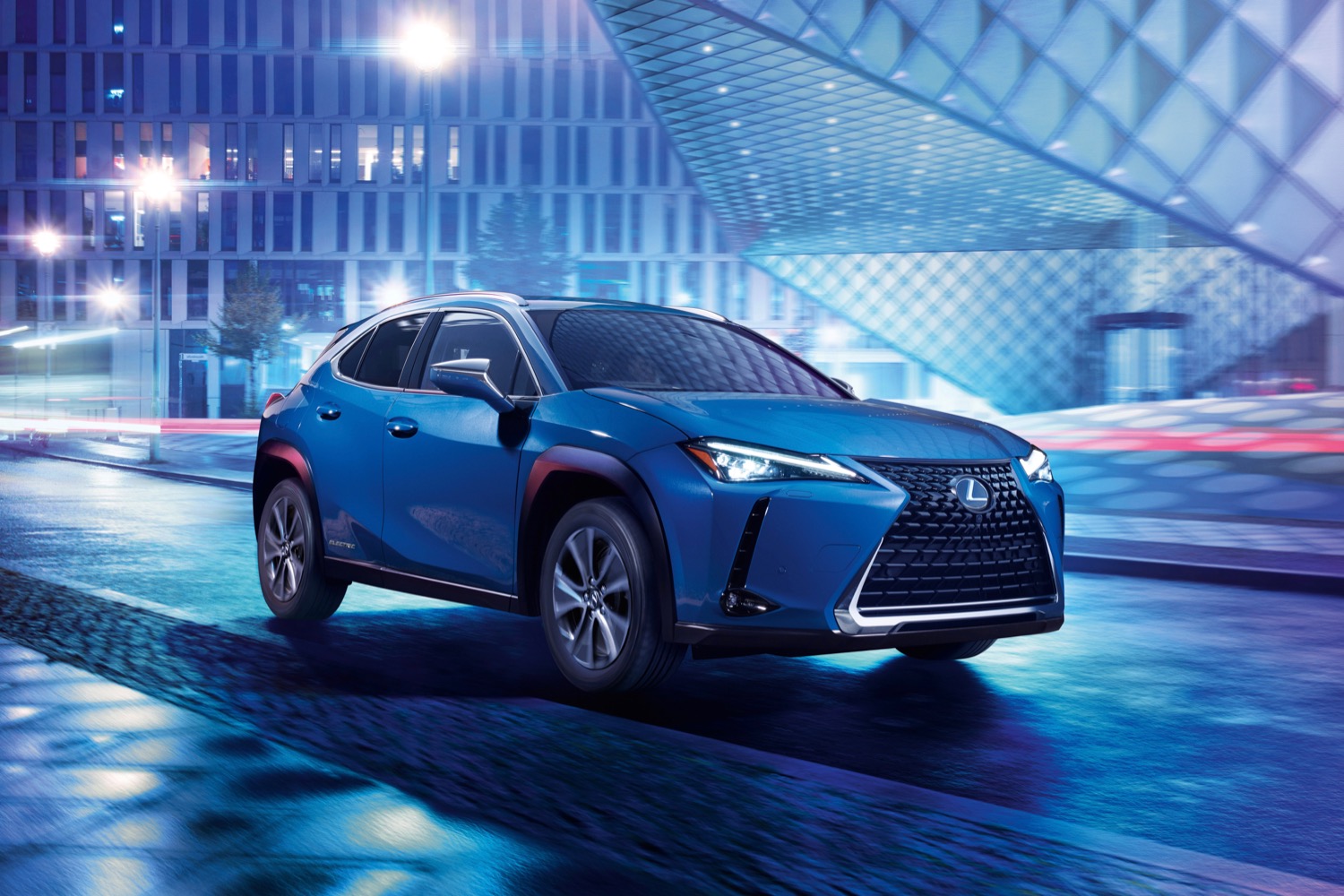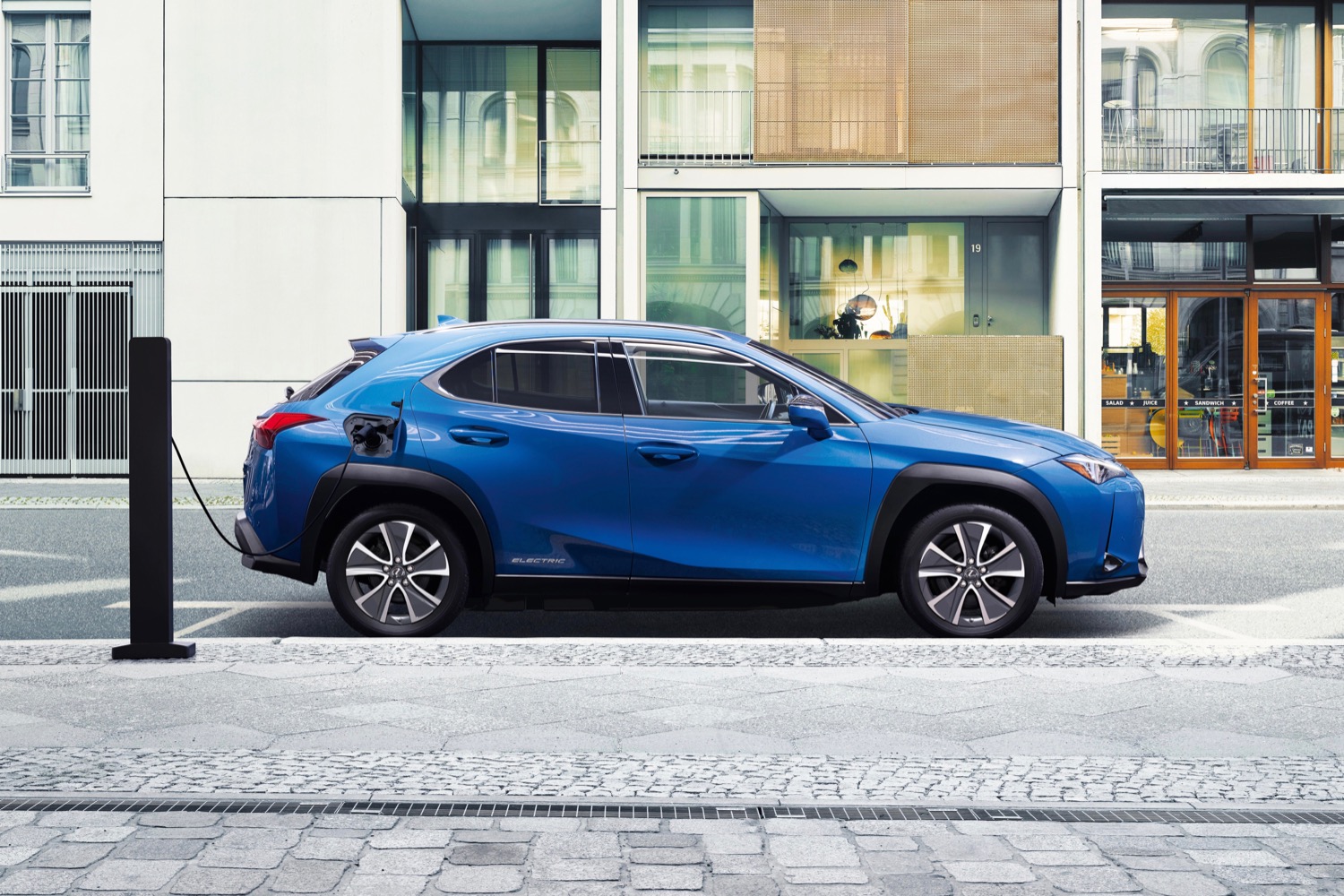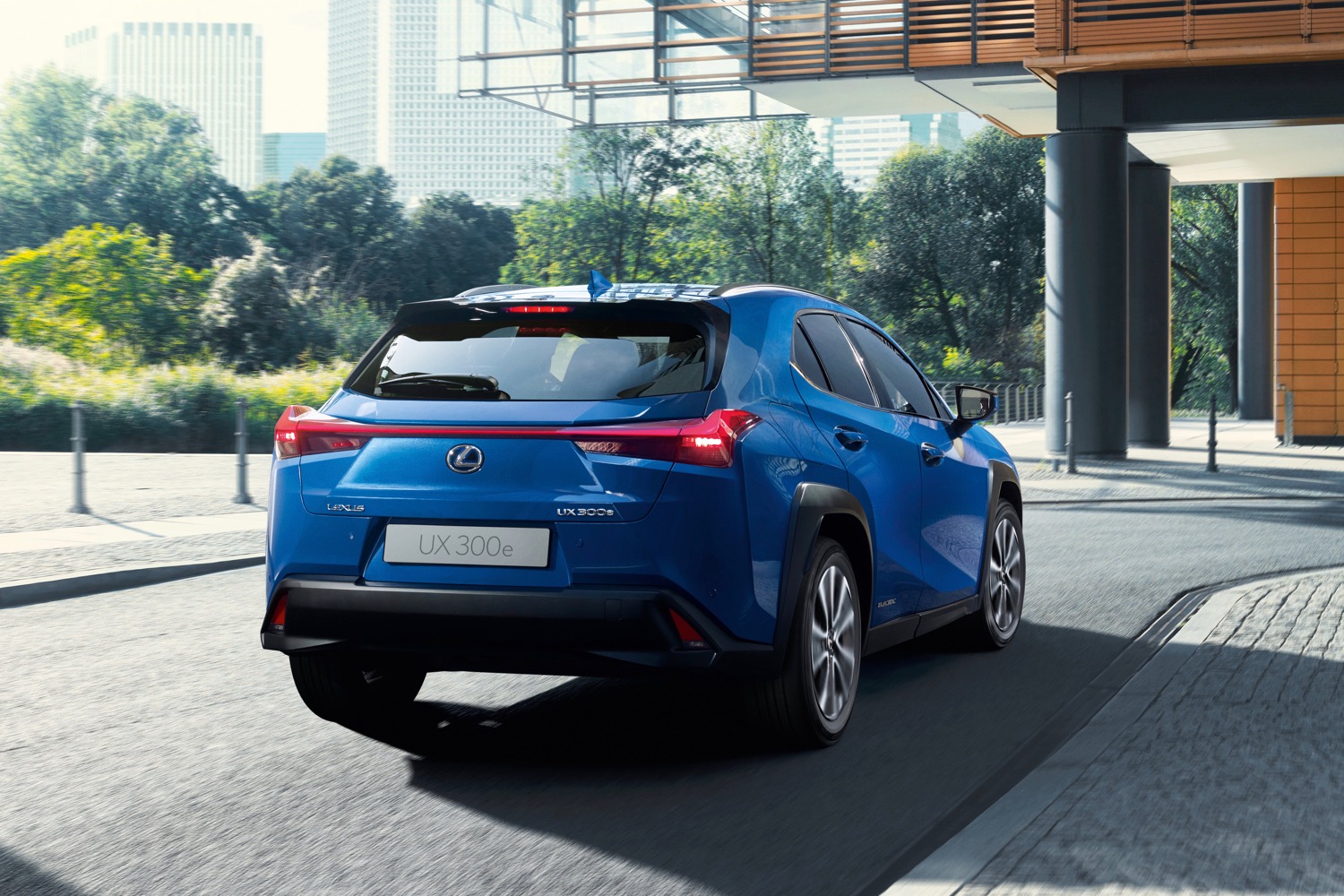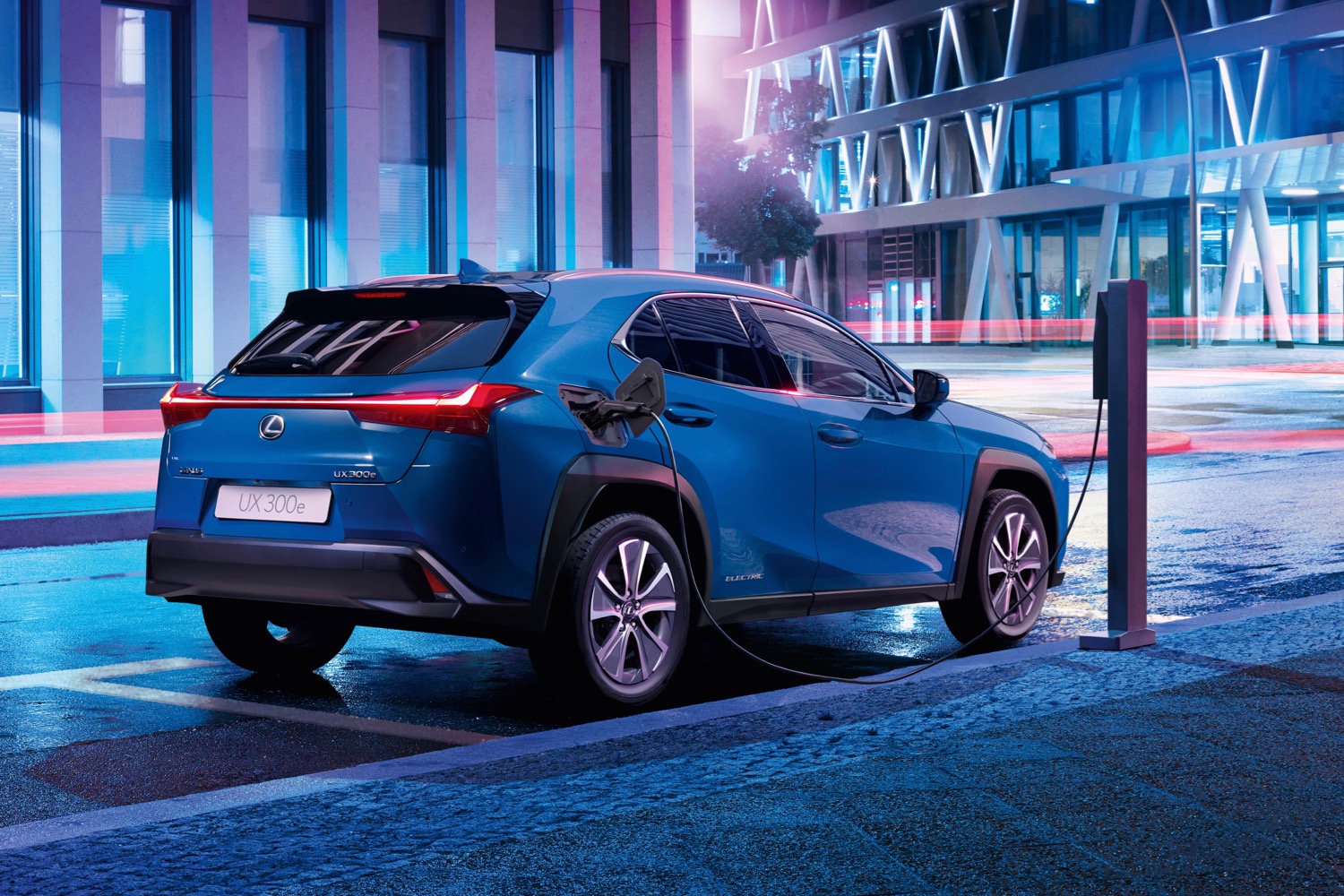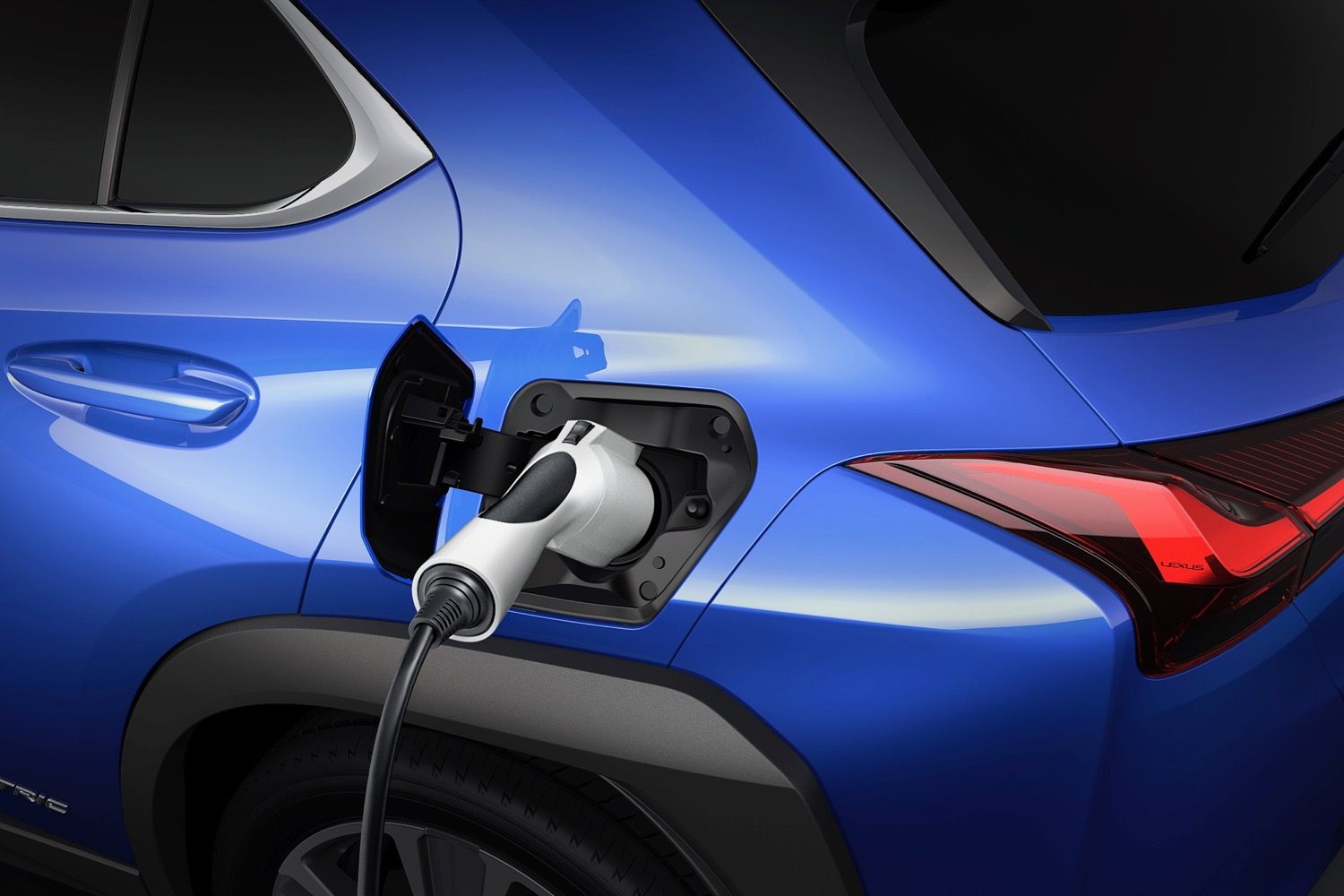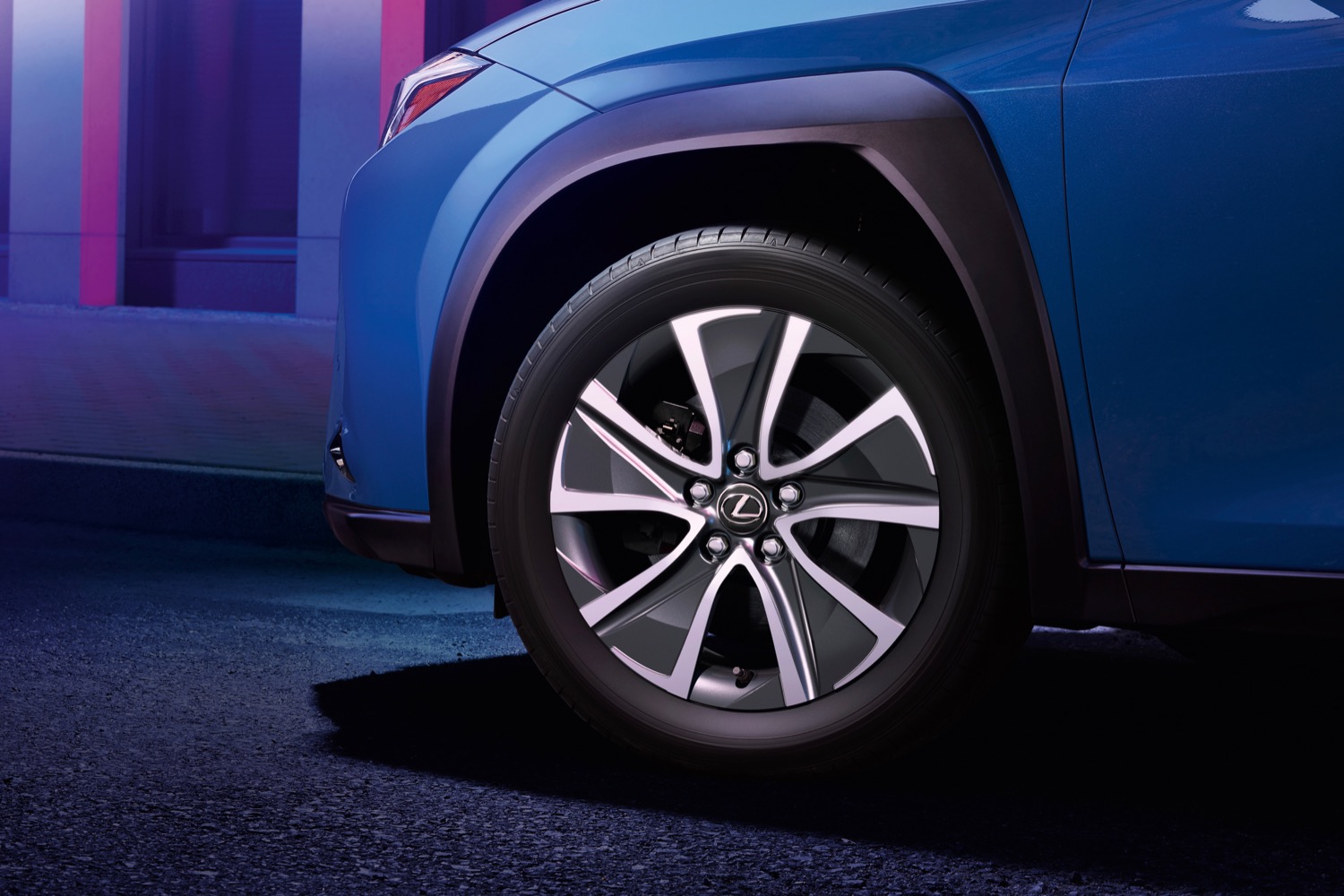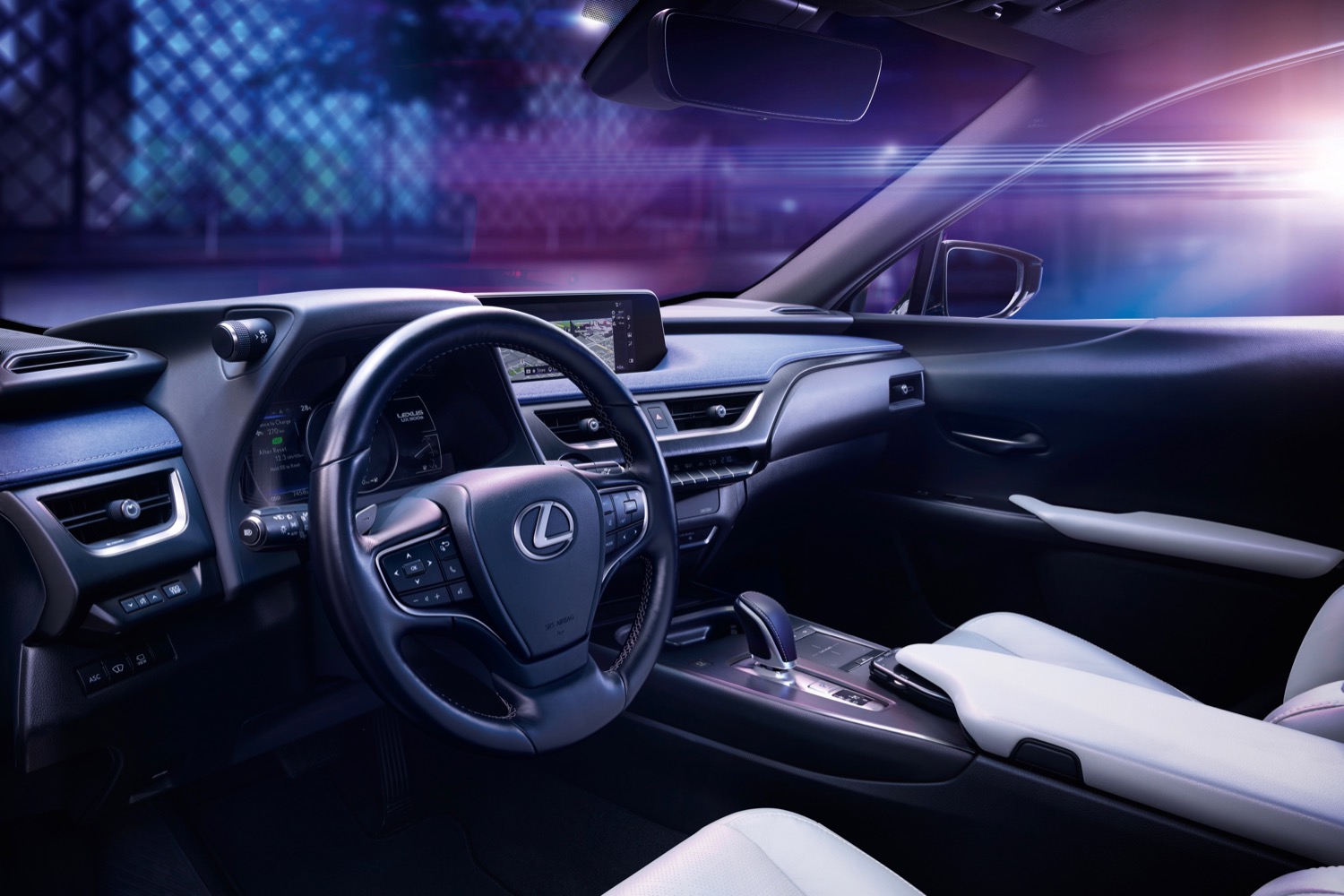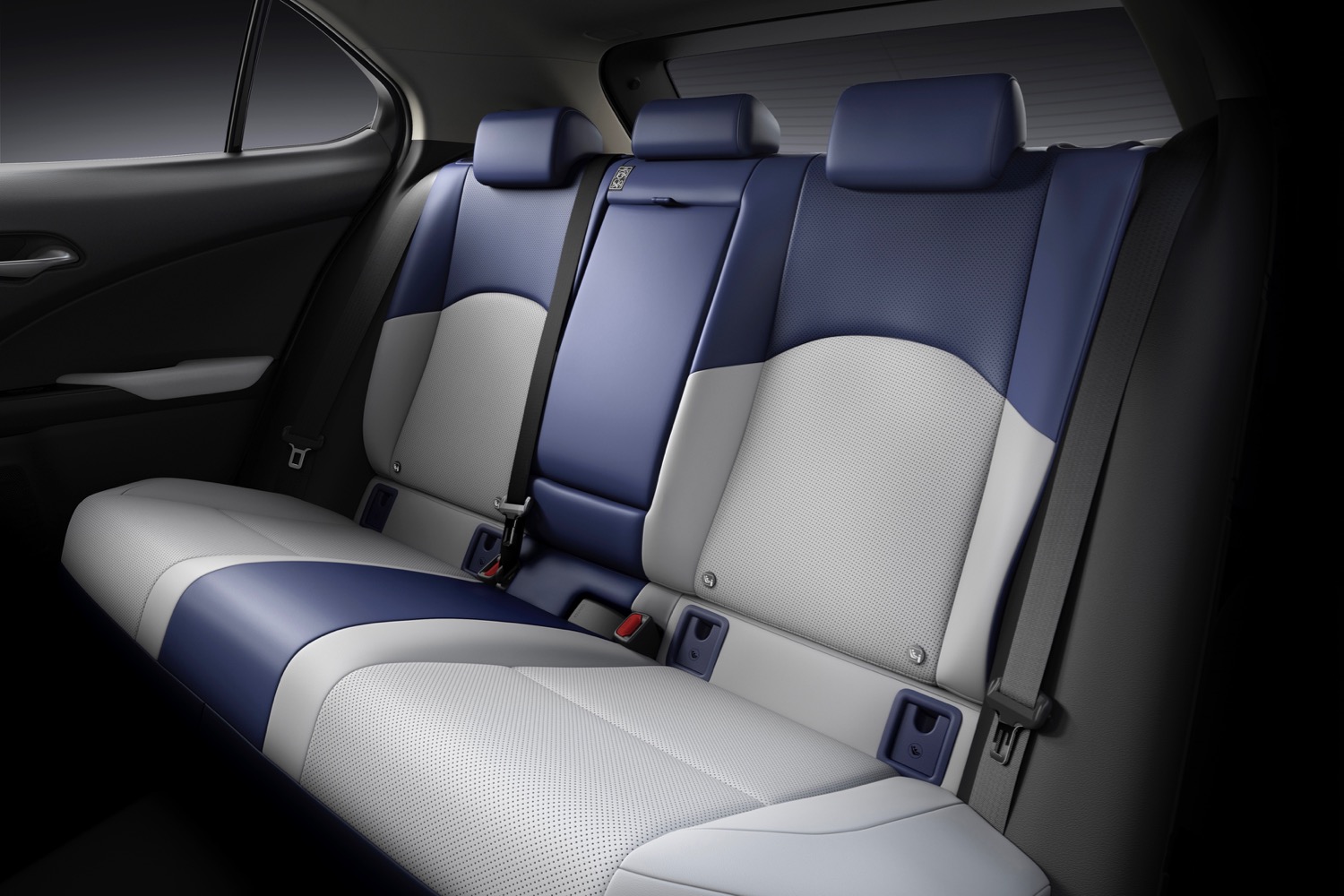Lexus has unveiled its first production electric car — a battery-powered version of the UX crossover called the UX 300e. The new model will go on sale in some countries in 2020, but Lexus has not discussed plans to bring the electric crossover to the United States.
Following the philosophy of parent company Toyota, Lexus has been slow to adopt electric cars, favoring hybrids instead. But Lexus has to face tougher emissions standards in countries like China — where the UX 300e was unveiled at the 2019 Guangzhou Auto Show. Lexus also needs to keep pace with other luxury brands that are introducing their own all-electric models.
A single electric motor produces 201 horsepower and 221 pound-feet of torque. That’s substantially more than the 169 hp and 151 lb.-ft. of the 2.0-liter four-cylinder gasoline engine in the U.S.-spec UX 200, or the 181-hp total system output of the UX 250h hybrid.
A 54.3 kilowatt-hour battery pack provides a claimed 400 kilometers (248 miles) of range on the New European Driving Cycle (NEDC) testing cycle. A comparable figure for the U.S. testing cycle would likely be a bit lower. The UX 300e has a 6.6-kilowatt onboard AC charger, and is capable of DC fast charging at 50 kW. Both of those figures are respectable, but not class-leading.
As with other electric cars, the driver can use regenerative braking to slow the car down without touching the brake pedal, while also recouping some energy. Lexus included paddle shifters that allow the driver to adjust the level of regeneration, a feature previously seen on electric cars and plug-in hybrids from other automakers.
The UX may be tiny, but it’s still supposed to be a luxury car. To create that upscale ambiance, Lexus focused on eliminating unwanted noises from the cabin. An electric powertrain is naturally quieter than an internal combustion engine and transmission, but engineers also added extra sound-deadening material to the UX 300e to quell sounds people normally wouldn’t hear over the noise of a gasoline engine, according to Lexus. Engineers also devised an “active sound control” system that transmits some ambient sounds “to allow for understanding of driving conditions.
The Lexus UX 300e will go on sale in China and Europe in 2020, followed by Lexus’ home country of Japan in 2021. Lexus did not mention any plans for U.S. sales, so it’s unclear if the UX 300e will make it here. But an electric Lexus may hit U.S. showrooms eventually.
Reversing course on its previous hostility toward electric cars, Lexus unveiled an electric concept car at the 2019 Tokyo Motor Show. Lexus parent Toyota is also expanding its partnership with Subaru to include electric cars. These developments indicate that more Lexus electric cars could be in the pipeline.
